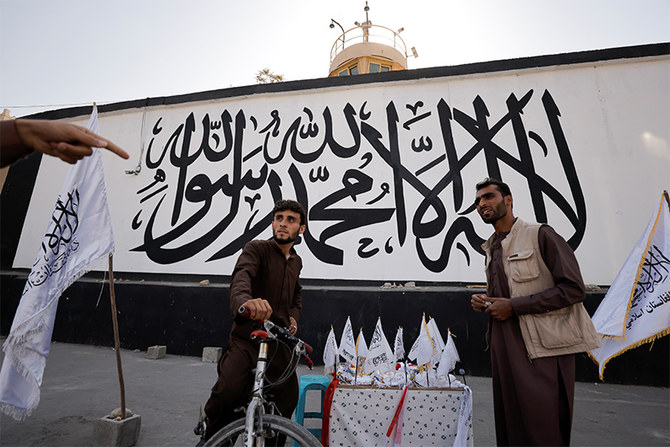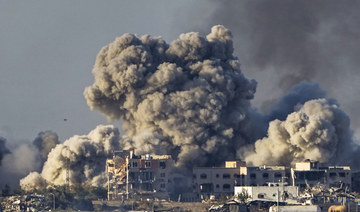ISLAMABAD: Senior Taliban officials and US representatives are to hold talks Saturday and Sunday about containing extremist groups in Afghanistan and easing the evacuation of foreign citizens and Afghans from the country, officials from both sides said.
It's the first such meeting since US forces withdrew from Afghanistan in late August, ending a 20-year military presence there, and the Taliban's rise to power in the nation. The talks are to take place in Doha, the capital of the Persian Gulf state of Qatar.
Taliban spokesman Suhail Shaheen, who is based in Doha, told The Associated Press on Saturday that the talks will also revisit the peace agreement the Taliban signed with Washington in 2020. The agreement had paved the way for the final US withdrawal.
“Yes there is a meeting . . . about bilateral relations and implementation of the Doha agreement,” said Shaheen. “It covers various topics.”
Terrorism will also feature in the talks, said a second official who spoke on condition of anonymity because he was not authorized to speak to the media.
Since the Taliban took power, Daesh extremists have ramped up attacks on the militant group, as well as ethnic and religious minorities. On Friday, a Daesh suicide bomber killed at least 46 minority Shiite Muslims and wounded dozens in the deadliest attack since the US departure.
Daesh has carried out relentless assaults on the country’s Shiite Muslims since emerging in eastern Afghanistan in 2014. It is also seen as the greatest threat to the United States.
The US-Taliban agreement of 2020, which was negotiated by the Trump administration, demanded the Taliban break ties with terrorist groups and guarantee Afghanistan would not again harbor terrorists who could attack the United States and its allies.
It seems certain the two sides will discuss in the weekend talks how to tackle the growing threat. The Taliban have said they do not want US anti-terrorism assistance and have warned Washington against any so-called “over-the-horizon” strikes on Afghan territory from outside the country's borders.
The United States, meanwhile, would seek to hold Taliban leaders to commitments that they would allow Americans and other foreign nationals to leave Afghanistan, along with Afghans who once worked for the US military or government and other Afghan allies, a US official said.
The official spoke on condition of anonymity because the person was not authorized to speak by name about the meetings.
The Biden administration has fielded questions and complaints about the slow pace of US-facilitated evacuations from Taliban-ruled Afghanistan since the US withdrawal.
State Department spokesman Ned Price said Thursday that 105 US citizens and 95 green card holders had left since then on flights facilitated by the US. That number had not changed for more than a week.
US veterans and other individuals have helped others leave the country on charter flights, and some Americans and others have gotten out across land borders.
Hundreds of other foreign nationals and Afghans have also left on recent flights.
Dozens of American citizens are still seeking to get out, according to the State Department, along with thousands of green-card holders and Afghans and family members believed eligible for US visas. US officials have cited the difficulty of verifying flight manifests without any American officials on the ground in Afghanistan to help, along with other hold-ups.
Americans also intend to press the Taliban to observe the rights of women and girls, many of whom the Taliban are reportedly blocking from returning to jobs and classrooms, and of Afghans at large, and to form an inclusive government, the official said.
US officials will also encourage Taliban officials to give humanitarian agencies free access to areas in need amid the economic upheaval following the US departure and Taliban takeover.
The official stressed the session did not imply the US was recognizing the Taliban as legitimate governors of the country.





























